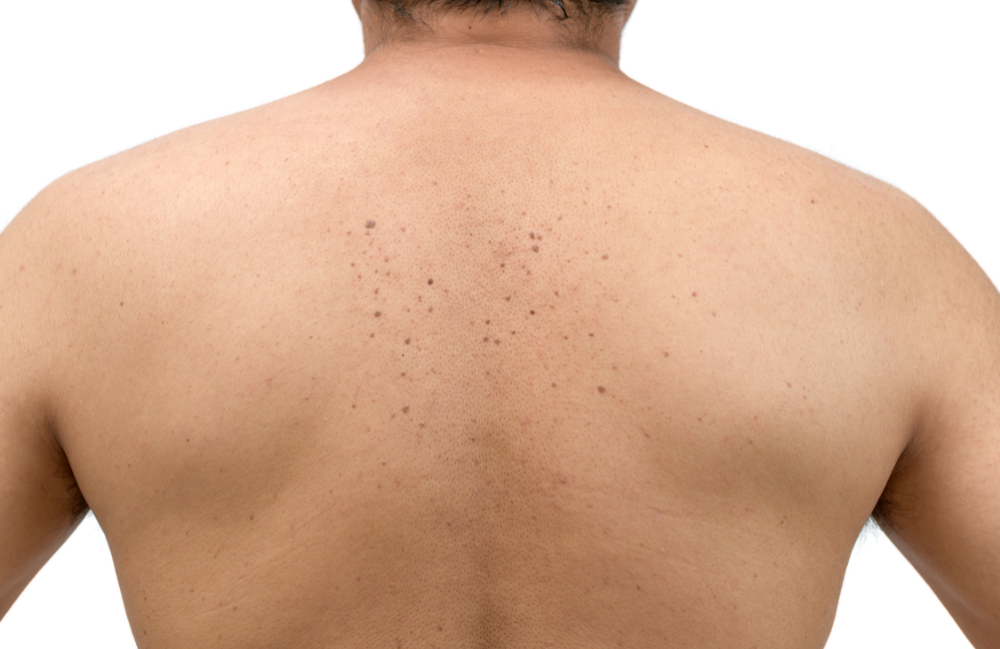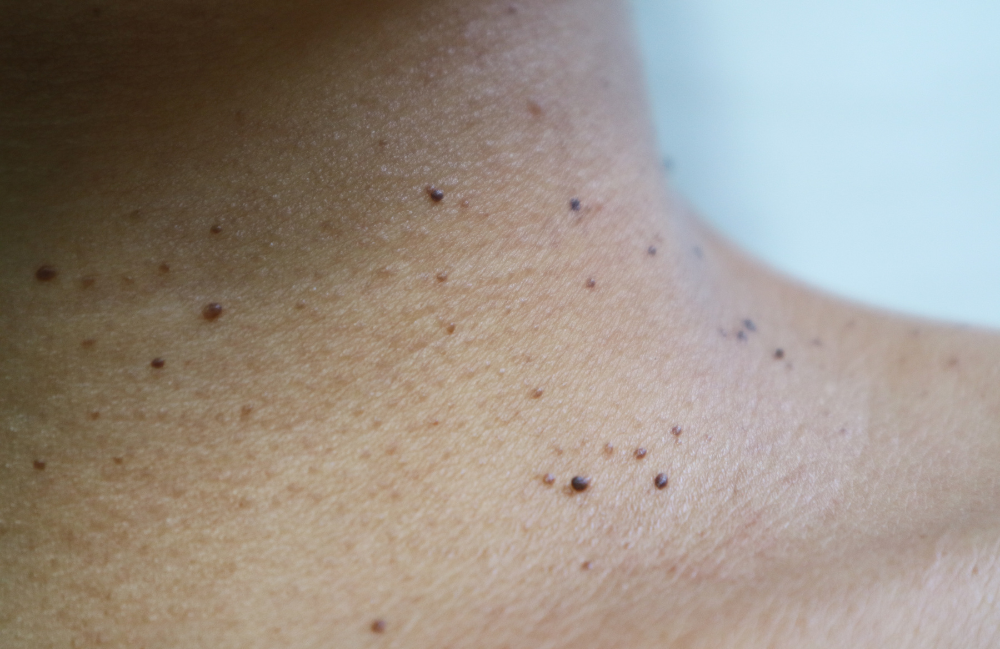
What is Seborrheic Keratosis?
Seborrheic keratosis is a non-cancerous skin growth that develops from the outer layer of skin cells. These lesions can vary in color, ranging from light tan to black, and they often have a waxy or scaly texture. While some individuals develop only one or two growths, others may develop clusters of seborrheic keratoses. They typically appear on areas of the body that are exposed to the sun, such as the face, neck, chest, and back.
Causes
The exact cause of seborrheic keratosis is not fully understood, but it is believed to be related to genetic factors. They are more likely to develop in individuals over the age of 50 and often run in families. Unlike other skin growths, seborrheic keratoses are not caused by sun exposure, and they do not pose any increased risk of skin cancer. However, their appearance can sometimes resemble more serious conditions, making proper diagnosis important.
Symptoms
The primary symptoms of seborrheic keratosis include:
- Waxy, scaly appearance. These growths often look like they’ve been “stuck” onto the skin’s surface.
- Varied colors. They can range from tan, brown, or black, often appearing darker over time.
- Irregular shape. Seborrheic keratoses can be round or oval and may have a rough texture.
- Itchiness. In some cases, these growths may itch or become irritated when rubbed against clothing.
What Are the Possible Treatments?
While seborrheic keratosis does not require treatment, many people opt to have the growths removed for cosmetic reasons or due to discomfort. At Metropolis Dermatology, we offer several advanced treatments, including:
- Laser Treatment: Targeting the growth with lasers to remove it with minimal scarring.
Other recommended treatments:
- Cryotherapy. Freezing the growth with liquid nitrogen to remove it.
- Curettage. Scraping off the growth with a sharp tool after numbing the area.
- Electrocautery. Using electric current to burn off the growth.
Each of these options can effectively eliminate seborrheic keratosis, and our dermatologists will help determine the best treatment based on your specific needs.

FAQs
Can seborrheic keratosis turn into skin cancer?
No, seborrheic keratosis is benign and does not increase your risk of skin cancer.
Is treatment necessary for seborrheic keratosis?
Treatment is not required unless the growth becomes irritated, bleeds, or you prefer to have it removed for cosmetic reasons.
How long does the removal procedure take?
Most removal procedures are quick and can be done in-office, typically taking 20-30 minutes.
Will seborrheic keratosis return after removal?
The treated growth will not return, but new growths may develop elsewhere on the skin.
Does insurance cover seborrheic keratosis removal?
In most cases, removal is considered cosmetic and may not be covered by insurance, unless the growth is causing irritation.
Hear from
Real Patients

Schedule Your Consultation Today
If you are concerned about seborrheic keratosis or are interested in removal, schedule a consultation at Metropolis Dermatology in San Jose, CA!
